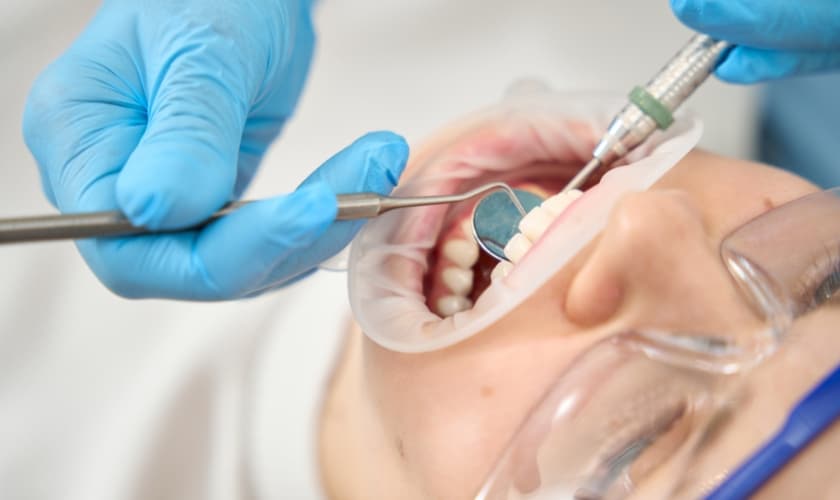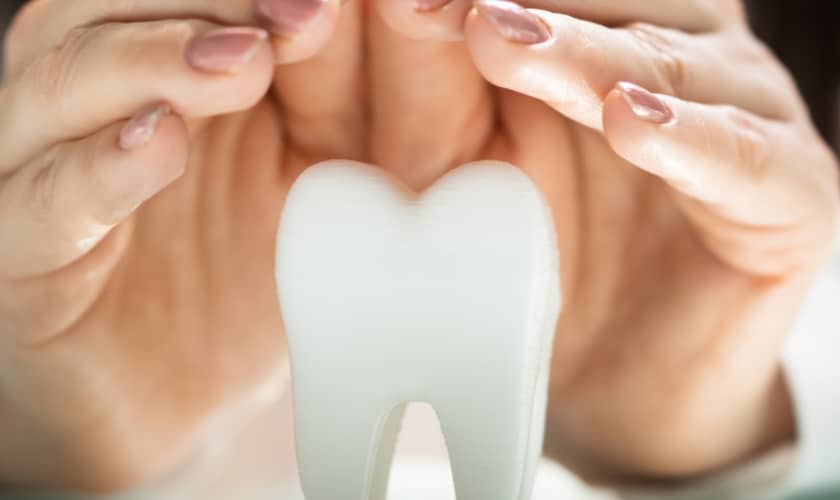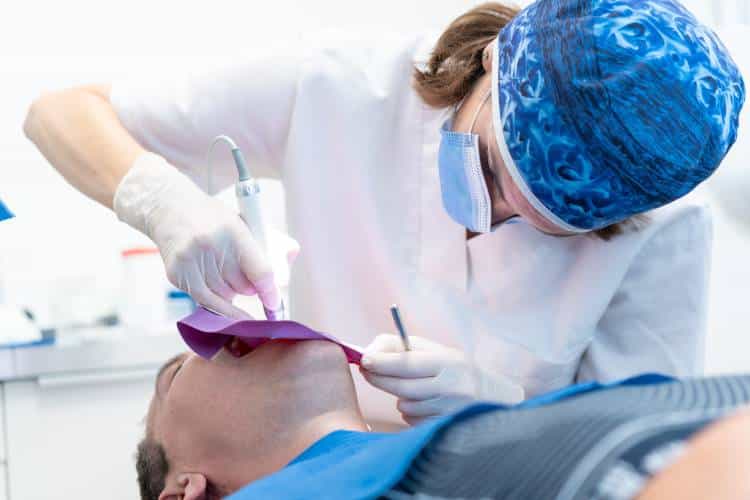Dental crowns are fantastic restorations that can bring back a tooth’s strength, function, and aesthetics. But sometimes, a small gap might appear between the crown and your gumline. This can be for various reasons, and while it might seem like a minor issue, it shouldn’t be ignored. Let’s delve into the reasons behind this gap and explore solutions to get your smile looking its best again.
Understanding the Gap: Causes and Concerns
There are two main culprits for a gap between your crown and gum:
- Loose Crown: The cement holding the crown in place might weaken over time, causing a slight shift and a visible gap. This can leave the underlying tooth vulnerable to decay.
- Gum Recession: Gum tissue naturally recedes with age, but gum disease can accelerate this process. When the gum shrinks back, it exposes the root surface of the tooth and creates a gap next to the crown.
A gap between your crown and gum can be more than just an aesthetic concern. It can trap food particles and plaque, making it harder to maintain proper oral hygiene. This can lead to further gum recession, tooth decay, and even bone loss in the jaw.
Addressing the Gap: Treatment Options
The best course of action depends on the cause of the gap. Here’s what a dentist in Watford might recommend:
- Re-cementing the Crown: If the crown is loose but otherwise intact, the dentist can remove it, clean the tooth and crown, and re-cement it with a stronger bonding agent.
- Crown Replacement: If the gap is significant or the crown is damaged, a new crown might be necessary. This ensures a proper fit and protects the underlying tooth structure.
- Gum Grafting: In cases of gum recession, gum grafting procedures can be performed to restore the gumline and cover the exposed tooth root. This not only improves aesthetics but also promotes gum health. There are different gum grafting techniques, and the dentist will choose the most suitable one based on the severity of the recession and the amount of tissue needed.
- Bite Adjustment: In some cases, an improper bite can put excessive pressure on the crown, causing it to loosen or shift. The dentist can use various techniques to adjust the bite and ensure even distribution of forces when chewing. This might involve grinding down certain teeth or using dental appliances like nightguards.
Taking Care of Your Crown and Gums
Here are some tips to maintain your dental crown and gum health:
- Practice meticulous oral hygiene: Brushing twice daily and flossing once a day removes plaque and food debris that can contribute to gum problems. Use a soft-bristled brush and pay particular attention to the gumline around the crown.
- Schedule regular dental check-ups: Regular visits allow your dentist to identify any issues early on, including loose crowns or gum recession. During these check-ups, the dentist will also clean your teeth professionally, removing any stubborn plaque or tartar buildup.
- Maintain a healthy diet: Limit sugary and acidic foods that can erode tooth enamel and contribute to gum disease. Opt for a balanced diet rich in fruits, vegetables, and whole grains to nourish your teeth and gums.
- Don’t use your teeth for unintended purposes: Avoid chewing on hard objects like ice or fingernails, which can damage your crown. This can cause cracks or chips in the crown, requiring replacement.
A Confident Smile with Healthy Support
A gap between your crown and gum might seem like a small detail, but it’s important to address it promptly to prevent further complications. By working with a dentist in Watford, you can explore the best treatment options to restore a healthy foundation for your smile and regain your confidence. Remember, early intervention is key to maintaining optimal oral health and a beautiful smile.
Regular dental check-ups are crucial not just for monitoring your crown and gums but for your overall oral health. During these visits, your dentist can also screen for oral cancer and other dental problems. If you’re experiencing any discomfort or suspect an issue with your crown or gums, don’t hesitate to schedule an appointment with a dentist right away.





